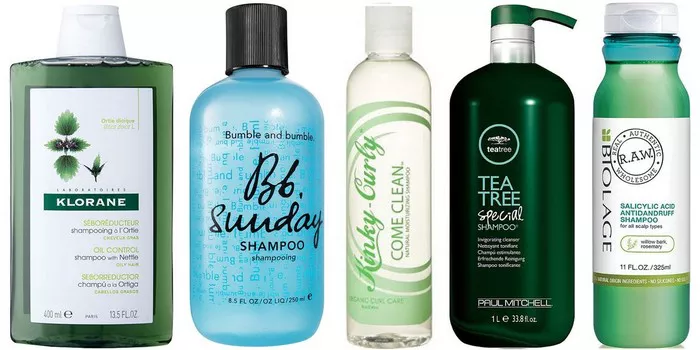In today’s competitive haircare market, achieving the perfect consistency for your conditioner is crucial to attracting and retaining satisfied customers. Consumers often look for thicker conditioners, as they associate them with higher quality and better results. If you’re a haircare product manufacturer or simply a DIY enthusiast, knowing how to make conditioner thicker can give you a significant advantage. In this article, we’ll provide a comprehensive guide on making your conditioner thicker to meet these growing demands. We’ll explore various methods, ingredients, and techniques, ensuring your product stands out and satisfies your target audience.
The Importance of Thick Conditioner
Before diving into the methods for thickening your conditioner, it’s vital to understand why thick conditioner is highly sought after. A thicker consistency offers several advantages, such as:
1. Enhanced Moisture Retention:
Thicker conditioners adhere better to the hair, ensuring that the moisture and nutrients penetrate each strand effectively.
2. Improved Manageability:
Thicker formulas are easier to apply and distribute through the hair, making the conditioning process more manageable.
3. Perceived Quality:
Many consumers associate thicker conditioners with higher quality products, which can improve brand reputation and sales.
4. Customization:
Thicker conditioners allow for greater flexibility in creating products tailored to specific hair types and needs.
Natural Ingredients for Thickening Conditioner
Now that you understand the benefits of thick conditioner, let’s explore some natural ingredients you can use to achieve this desired consistency:
1. Aloe Vera Gel:
Aloe vera is known for its hydrating properties and can be used to thicken conditioner while adding moisture to the hair.
2. Honey:
Honey is a natural humectant, attracting and retaining moisture, which contributes to a thicker and more hydrating conditioner.
3. Xanthan Gum:
This natural thickening agent can be added in small amounts to conditioner to increase viscosity effectively.
4. Marshmallow Root:
Boil marshmallow root and use the infused water to thicken your conditioner naturally.
5. Yogurt:
Adding yogurt to your conditioner can enhance its thickness and provide nourishing properties to the hair.
DIY Recipes for Thicker Conditioner
For those looking to create their own thicker conditioner, here are a few easy-to-follow DIY recipes:
1. Aloe and Honey Conditioner:
Mix 1/2 cup of aloe vera gel with 2 tablespoons of honey.
Blend until smooth and apply to your conditioner base.
Stir well for a thicker, moisturizing conditioner.
2. Xanthan Gum Thickening:
Sprinkle 1/4 teaspoon of xanthan gum into your conditioner.
Stir gently, allowing it to thicken for a few hours before use.
3. Marshmallow Root Infusion:
Boil 2 tablespoons of dried marshmallow root in 1 cup of water.
Allow the mixture to cool and strain it into your conditioner.
5. Yogurt-Infused Conditioner:
Mix 1/4 cup of plain yogurt with your conditioner.
Ensure an even blend for a creamy, thicker consistency.
Commercial Thickeners and Additives
Haircare manufacturers may prefer to use commercial thickeners and additives to ensure consistent product quality and meet market demand. Some common options include:
1. Cetyl Alcohol:
This fatty alcohol is an excellent thickener that also offers emollient properties, leaving hair soft and manageable.
2. Guar Gum:
Guar gum is a popular choice for thickening hair conditioners and offers excellent conditioning effects.
3. Polyquaternium-10:
This water-soluble polymer not only thickens but also enhances the detangling properties of your conditioner.
4. Stearalkonium Chloride:
A quaternary ammonium compound, stearalkonium chloride helps condition and thicken hair products.
Quality Control and Testing
Once you’ve implemented your chosen method for thickening your conditioner, it’s essential to conduct quality control and testing. This step involves:
1. Consistency Testing:
Ensure that your conditioner maintains the desired thickness consistently over time.
2. Sensory Evaluation:
Conduct sensory tests to guarantee that the texture and feel of the product meet customer expectations.
3. pH and Preservative Evaluation:
Confirm that the addition of thickeners hasn’t affected the product’s pH or compromised its preservation.
Market Research and Customer Feedback
To maximize the success of your thicker conditioner, continuous market research and customer feedback are crucial. Regularly assess consumer preferences, market trends, and gather insights from user reviews. This information will help you adapt your product to evolving demands and ensure long-term success.
See Also: Which shampoo and conditioner is best for dry hair: A Simple Guide
In conclusion
Knowing how to make conditioner thicker is essential for both DIY enthusiasts and haircare manufacturers. Whether you choose natural ingredients, DIY recipes, or commercial thickeners, the key is to create a product that not only meets market expectations but also delights your customers. By understanding the benefits of thicker conditioners and staying attuned to market trends, you can position your product for success in the ever-evolving haircare industry.


